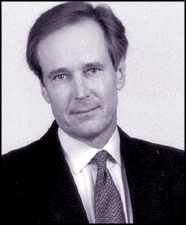January 20 - 27, 2000
![[Features]](/standard/image/headers/features_header.gif)
Media
Fallows goes to work for an old critic
Media by Dan Kennedy
It got damned ugly when Mort Zuckerman fired James Fallows as editor of U.S. News & World Report in June 1998. Fallows, installed 22 months earlier with the goal of implementing some of the media-reform ideas he laid out in his 1996 book, Breaking the News, did not go quietly: he wrote a lengthy, bitter e- mail that became public about 17 minutes after he zapped it to the U.S. News staff. The nasty falling-out with Zuckerman made it impossible for Fallows to return to the Atlantic Monthly, another Zuckerman property, which had been Fallows's professional home since the early 1980s.
Now, with Zuckerman having sold the Atlantic last fall to National Journal owner David Bradley, Fallows is returning. New editor Michael Kelly (who's also editor-in-chief of the Journal) has named Fallows to be a "national correspondent" -- that is, a full-time staff writer. Fallows, reached at his home in Seattle, says he'll essentially have the same job he had before, writing about whatever interests him. In the past, those topics have included military reform, the Japanese economy, and, of course, the media. He will also continue to write a column for the Industry Standard, a technology magazine, and contribute occasionally to the New York Review of Books.
Several years ago, though, not all was sweetness and light between Fallows and Kelly, either. Kelly was not a fan of Breaking the News, which, among other things, included a long, favorable section on public journalism -- the notion that the news media should help shape the civic dialogue through such measures as organizing public forums and eschewing horse-race political coverage.
"Fallows offers a mistaken revisionism that there was a golden time in which the press did a better job explaining government and policy and politics than it does now," Kelly was quoted as saying in one of Maureen Dowd's New York Times columns in 1996. Several years before that, Kelly, writing in the New Yorker, dismissed a public-journalism experiment in North Carolina, saying, "The fraud was the notion that a self-selected group of reporters and editors somehow could or should determine the fit subjects for debate in an election."
Kelly now says he wasn't completely down on Breaking the News, and in fact liked Fallows's critique of "buckrakers" -- journalists who cash in on their talking-heads-show fame by accepting lucrative speaking fees from private organizations. He stands by his criticism of public journalism, but adds that it's no big deal.
"Nobody agrees with everybody's every sentiment. But I was always impressed by his [Fallows's] talents," Kelly says. "It is pretty much an article of faith with me that it doesn't matter whether an editor agrees with this or that view or this or that writer at all," he adds, saying that he believes in "a tent that is big and invites everybody in."
Says Fallows of his philosophical differences with his new editor: "We've talked it over. We can disagree about things without being enemies. Hey, I disagree with my wife about some things."

